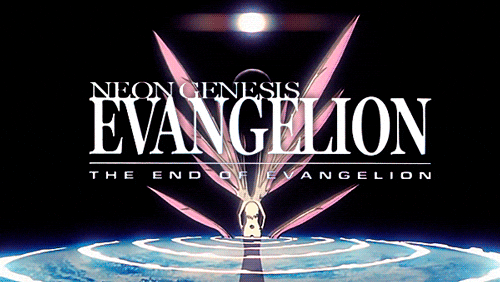- VerseTaku
- Posts
- Daniel Caesar's Freudian and Neon Genesis Evangelion: Psychological Depths
Daniel Caesar's Freudian and Neon Genesis Evangelion: Psychological Depths
The realm of Daniel Caesar's Freudian is a silky soundscape that navigates the complexities of love and vulnerability, with Caesar’s dulcet tones and poignant lyrics painting a vivid portrait of youthful yearning. In another artistic domain, the groundbreaking anime Neon Genesis Evangelion delves into the human psyche, uncovering layers of existential angst and emotional turmoil amid apocalyptic stakes. While one is a musical endeavor and the other a visual storytelling marvel, both delve into the depths of the human condition, echoing themes of psychological exploration and the quest for understanding one's identity within a larger social framework.

At the heart of Caesar's evocative album and Evangelion's dramatic narrative lies a potent exploration of identity and interpersonal relationships. Freudian's soulful ballads like “Get You” and “Best Part” reflect the tender, often complicated, dynamics of love and human connection, a sentiment mirrored in Evangelion’s intricate character relationships and their struggles for understanding.
Neon Genesis Evangelion’s protagonist, Shinji Ikari, grapples with his sense of self against the backdrop of societal expectation, much like the introspective musings found in Caesar's "We Find Love," where the lyrics dive into the acceptance and loss within romantic engagements. Both works ask, what does it mean to be truly connected with another?
You don't love me anymore / Let's see how you like this song
The battle against Angels in Evangelion can be seen as a metaphorical conflict within one's psyche, battled every day. It resonates with Freudian's melodies that often hint at inner turmoil and the struggle to find peace within one's mind.
Artistic Narrative and Emotional Symphony
Daniel Caesar’s album thrives on its lyrical depth and musical composition, which highlight the emotional narrative of love and longing with a blend of R&B and gospel. Similarly, Evangelion employs its visual prowess and complex storytelling to convey its characters' psychological states. The color palette, the framing of shots, and the iconic soundtrack by Shiro Sagisu collectively amplify the viewer's emotional connection to the storyline and its characters.
“Neuropsychiatry, could you be my friend? Our love is six feet under, I can’t help but wonder if our grave was watered by the rain.” This Freudian lyric speaks volumes about craving and coping, paralleling the mental landscapes traversed by Evangelion characters, where battles are not only fought in mechas but within the recesses of troubled minds.
Emotional Resonance and Cultural Echo
Both Freudian and Evangelion have left indelible marks on their audiences. Caesar’s album prompts a reflection on personal experiences of love and growth, often leaving fans in a contemplative, introspective state. Evangelion, on the other hand, has sparked in-depth discussions on the human condition, existential dread, and the nature of reality versus illusion.
And it's okay to cry...
Neon Genesis Evangelion, Episode 25, "The Ending World"
The raw vulnerability expressed in this Evangelion quote encapsulates the catharsis that viewers and listeners experience – a permission to feel and embrace the full spectrum of human emotion, connecting profoundly with the audience.
Lyrical and Quotable Synchronicity
Daniel Caesar’s nuanced lyrics and Evangelion’s memorable quotes often echo each other, underscoring the thematic parallels:
Would you know what to do if you had me and I was yours?
— Daniel Caesar, "Hold Me Down"
This lyric’s exploration of love and ownership could easily resonate with Evangelion's Shinji and Asuka’s complex relationship, highlighting the theme of dependency and the quest for authentic connection.
Reflections on the Harmony between Mediums
Fans of Freudian can find a fresh perspective in Evangelion's layered narrative, discovering new dimensions of emotional depth and understanding the intricacies of human relationships. Conversely, Evangelion enthusiasts may find Caesar's Freudian a soothing yet stirring companion that sonically articulates the anime’s complex emotional journey.
Why is this comparison meaningful? Music and anime, at their core, are languages of emotion and expression. Daniel Caesar's Freudian and Neon Genesis Evangelion serve not merely as entertainment but as windows into our own souls. They teach us, heal us, and connect us, reminding us that at the intersection of art and human experience, we find a shared psychological depth that defies medium boundaries.